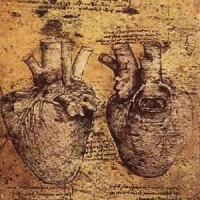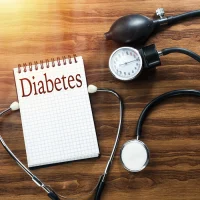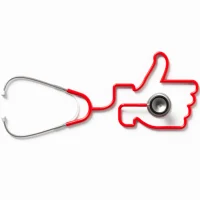Social media #SoMe can now be considered one of the most important methods of communication in healthcare, especially in cardiology. Twitter, in particular, is gaining increasing popularity among clinicians, scientists, and researchers.
Currently there are a total of 326 million Twitter users. Some 100 million of these users are active daily with approximately 500 million tweets sent out every day.
You might also like: Can AI and machine learning augment the effectiveness of a cardiologist?
If you browse through Twitter, you will see that almost every major cardiovascular journal and professional cardiovascular societies and organisations are active on Twitter. These include the American College of Cardiology, the European Society of Cardiology, and the Journal of American College of Cardiology, JAMA Cardiology, the American Heart Association, and Heart.org as well as the most prestigious medical journals including NEJM, Lancet and JAMA. Many healthcare professionals now make it a point to tweet if they publish a new paper or study or if they find a paper or study that they find interesting in order to advance dissemination. In other words, Twitter is now an excellent source if you are looking for the latest news and breakthrough research in cardiology.
On Twitter, the two most popular hashtags related to general cardiology include #CardioTwitter and #Cardiology, but there are more hashtags relating to cardiology subspecialties such as #radialfirst for coronary intervention, #TAVR for structural intervention, #whyCMR for cardiovascular magnetic resonance, #echofirst for cardiac echocardiography and #YeSCCT for cardiac computed tomography. All are being widely mentioned in tweets across the platform. In addition, Twitter has now made it possible for interested parties to get information from ongoing Congresses in real time by viewing online streaming of major sessions as well as by following congress/seminar hashtags.
Cardiologists and heart researchers and scientists now actively share their ideas, information about current projects and discussions on hot/controversial issues on Twitter and increasingly research ideas and collaborations first discussed on Twitter now begin to take shape For people interested in healthcare and cardiology can find a wealth of information on Twitter by following the relevant people and the popular hashtags.
The use of social media in cardiology is also an excellent medium to empower patients by allowing them the opportunity to increase their knowledge, understanding of their condition and education. All medical professionals including doctors, nurses, physiologists, radiographers and physiotherapists can engage in lively discussions in an open forum, where often the patients can be both observers and participants, linking directly to the source of the information. Social media is thus an excellent tool in the era of personalised medicine and the "informed patient."
In other words, the use social media in cardiology is a healthy and innovative trend which provides several benefits including:
- The opportunity for healthcare professionals in cardiology to interact with each other
- To share the latest, relevant and interesting information related to cardiology
- Improving the distribution of this information to a wider audience, including patients
- Promoting published work and research projects and/or clinical breakthroughs
- Influencing healthcare policies and regulations through healthy discussions and debate
Whether it is through blogs, articles, clinical publications, Congress sessions, and presentations or images, Twitter and other social media platforms provide the ultimate opportunity for both patients and doctors to interact, engage and share relevant information. Cardiovascular disease remains a leading killer and interest in new research, preventive measures and novel treatment is always of interest to both healthcare professionals and patients alike
Dr Vass Vassiliou MA, MBBS, PhD, FSCMR, FESC, FACC FRCP Edin, an Academic Cardiologist, from the United Kingdom, Chair-elect of the Population Science and Public Health section of the European Association of Preventive Cardiology, European Society of Cardiology shared his thoughts on the use of social media in cardiology in an interview with HealthManagement.org. According to him, "Social Media is gaining significant popularity amongst the medical and allied health professionals. It enables a platform where dissemination of research can materialise very quickly, at no cost, for the benefit of colleagues and patients across the world. I was very touched when a doctor from Uganda tweeted a “thank you” note to a group of us that were regularly twitting from the European Society of Cardiology in Munich, in August 2018 using a dedicated #ESCcongress hashtag as through this we enabled them to “patiently follow most of the updates from Uganda!” and “thanked us for advancing science!”, something that would have been impossible without #SoMe. Therefore, #SoMe play an important role in the education of medical professionals and patients through open discussions, case presentations and fast dissemination of important new research, hoping that his can provide better patient management across the globe."
Image Credit: iStock
Latest Articles
Cardiology, social media, Twitter
Social media can now be considered one of the most important methods of communication in healthcare, especially in cardiology. Twitter, in particular, is gaining increasing popularity among clinicians, scientists, and researchers.










